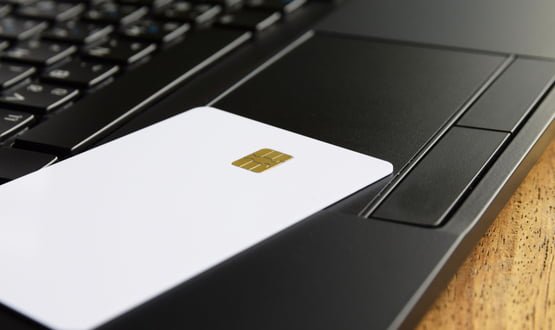NHS gets smart with contactless cards
- 3 August 2015

NHS trusts will have access to contactless smartcards, so staff can log into clinical systems on tablet computers, from autumn this year.
The Health and Social Care Information Centre is testing the new cards, which are designed to work with Windows tablet devices with built-in ‘near field communication’ technology that can read the card signals.
Rather than swiping a magnetic strip, users can tap the back of the tablet, enter their log-in details, and have access to the clinical system in place at their hospital.
The project is the latest step in the HSCIC’s Care Identity Service programme, which enables any organisation that uses Spine services to authenticate a care professional’s identity using smartcards.
The Care Identity Service programme used to be run by BT as part of its contract to manage Spine services, but responsibility was moved inhouse to the HSCIC in February this year in what was a relatively smooth ‘lift and shift’.
Andrew Meyer, head of the digital delivery centre at the HSCIC, said: "When we successfully transitioned from the old, extenrally run Identity Access Management service to the in-house Care Identity Service, we knew we had a real opportunity to develop a system which meets the needs of heatlh care workers now and in the future.
"We have been working closely with users, and this pilot is another way to help us gain valuable feedback about how health and care staff actually use the system, so that we can design a national solution that is intuitive and helps them to deliver the best possible care.
"The Care Identity Service is one of the largest secure employee authentication systems in the world, with 300,000 unique users logging in on a daily basis.
"By embracing new technologies and enabling smarter access, we can ensure that it is also the best authentication system in the world – which is what staff and patients both expect and deserve."
The contactless cards are due to launch in September or October this year as replacement for the 'series 6' smartcards, which are no longer available for the HSCIC to purchase following the end of the BT contract.
Speaking to the Digital Health News, the Care Identity Service team at the HSCIC explained that the new technology is designed to overcome issues with desktop computers that mean users have to repeat a lengthy sign-in process if they are logged out of a system.
Under the current system, if a user is logged out due to system idleness when deep into a patient record, they have to repeat the sign-in process and are taken back to system homepage.
With the new contactless system, trusts can configure a log out time for idleness, although once this runs out if a user taps their card and signs back into the system they will return to the screen they were on.
Adam Lewis, head of identity management at HSCIC, explained that work began on the new system based on historic feedback on problems with the service, and that the design process included testing with suppliers and NHS staff.
He added that the system is versatile enough to deal with trusts that have a bank of devices shared among staff or if staff each have a device of their own.
Brett Jackson, principle systems engineer at the HSCIC, pointed out that the new technology would also support mobility in other care settings such as the community.
"This supports care workers who work in remote settings, as well as staff in hospitals who will benefit from being able to view and update patient records at the bedside, freeing up valuable time and resources," he said.
The system is not mandatory and it will be up to individual trusts to adopt the technology if they see fit.



